I'm new to C#.
I have the following struct.
struct Foo
{
string key;
Bar values;
}
I have two lists of Foo, L1 and L2 of equal size both contain same set of keys.
I have to merge the corresponding Foo instances in L1 and L2.
Foo Merge(Foo f1, Foo f2)
{
// merge f1 and f2.
return result.
}
I wrote the following to achieve this.
resultList = L1.Join(L2, f1 => f1.key, f2 => f2.key, (f1, f2) => Merge(f1, f2)
).ToList())
My problem is that my key is not unique. I have n number of elements in L1 with the same key (say "key1") (which are also appearing in L2 somewhere). So, the above join statement selects n matching entries from L2 for each "key1" from L1 and I get n*n elements with key "key1" in the result where I want only n. (So, this is kind of crossproduct for those set of elements).
I want to use Join and still select an element from L1 with "key1" and force the Linq to use the first available 'unused' "key1" element from L2. Is this possible? Is join a bad idea here?
(Also, the I want to preserve the order of the keys as in L1. I tried to handle all elements with such keys before the join and removed those entries from L1 and L2. This disturbed the order of the keys and it looked ugly).
I'm looking for a solution without any explicit for loops.
